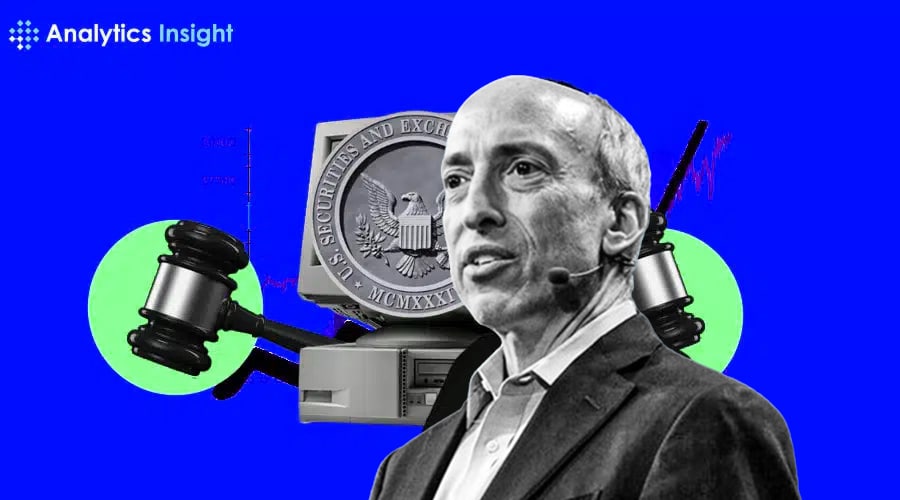.post-author {
position: relative;
padding-bottom: 0px;
height: 28px;
}
.author-image {
position: absolute;
bottom: 0;
left: -60px;
width: 100%;
border-radius: 0%;
cursor: pointer;
}
@media only screen and (max-width: 600px) {
.img {
position: absolute;
left: 20%;
width: 250px;
height: 200px;
}
.author-image {
left: 0px;
width: 100%;
}
.code-block .container {
padding: 0px;
}
.post-author {
margin-bottom: 0;
}
}
CFAT and Blockchain Association take legal action against SEC
In a federal court in Texas, the U.S. Securities and Exchange Commission (SEC) faces a legal challenge from the Blockchain Association (BA) and the Crypto Freedom Alliance of Texas (CFAT), prominent industry entities. The lawsuit revolves around the SEC’s recent introduction of a new rule designed to expand the definition of “dealer” in the cryptocurrency sphere.
Filed in the Northern District of Texas, the lawsuit contests what the BA and CFAT perceive as the SEC’s “misguided attacks” on the U.S. digital asset sector. The SEC’s enforcement actions and litigations against major cryptocurrency firms like Ripple and Coinbase have drawn criticism. The Blockchain Association’s website update indicates the groups’ intent to challenge the SEC’s new Dealer Rule, citing it as arbitrary and lacking rationale.
At the core of the dispute lies the SEC’s reinterpretation and broadening of the term “dealer” under the Securities Exchange Act of 1934. The BA and CFAT argue that the SEC’s expansion of this definition violates the Administrative Procedure Act (APA), leading to confusion and uncertainty within the cryptocurrency industry, hindering compliance with established norms.
Beyond legal complexities, opponents of the SEC’s new rule argue that it could disrupt digital asset trading firms and impact millions of Americans. The expanded definition of “dealer” introduces vague and extensive criteria that diverge significantly from industry standards, potentially impeding market participants and stifling innovation in the cryptocurrency sector.
The BA and CFAT’s lawsuit seeks injunctive and declaratory relief to address these concerns. Declaratory relief aims to obtain a court ruling on the legality of the SEC’s rule, while injunctive relief aims to halt the enforcement of the rule change. By pursuing legal action, these industry groups aim to safeguard the interests of cryptocurrency stakeholders and ensure adherence to transparent regulatory frameworks.
This legal battle represents the latest development in the ongoing conflict between regulators and the cryptocurrency industry, underscoring the challenges of regulating a rapidly evolving decentralized market. As cryptocurrencies gain mainstream acceptance, regulatory bodies like the SEC face the delicate task of balancing investor protection with innovation. The outcome of this legal dispute could have far-reaching implications for cryptocurrency regulation globally.
Stakeholders in the cryptocurrency space will closely monitor the progress of this lawsuit, eager to understand how the courts interpret the SEC’s rule. The BA and CFAT remain steadfast in their commitment to advocating for the cryptocurrency community, signaling their resolve to confront perceived regulatory overreach and promote a fair and transparent regulatory environment for all market participants.
In Summary:
As the cryptocurrency industry navigates legal uncertainties, grappling with regulatory challenges while striving for growth and legitimacy in the financial landscape, the lawsuit against the SEC by the BA and CFAT marks a pivotal moment. The repercussions of this legal battle will shape the future regulatory landscape for cryptocurrencies, setting a precedent for years to come.

